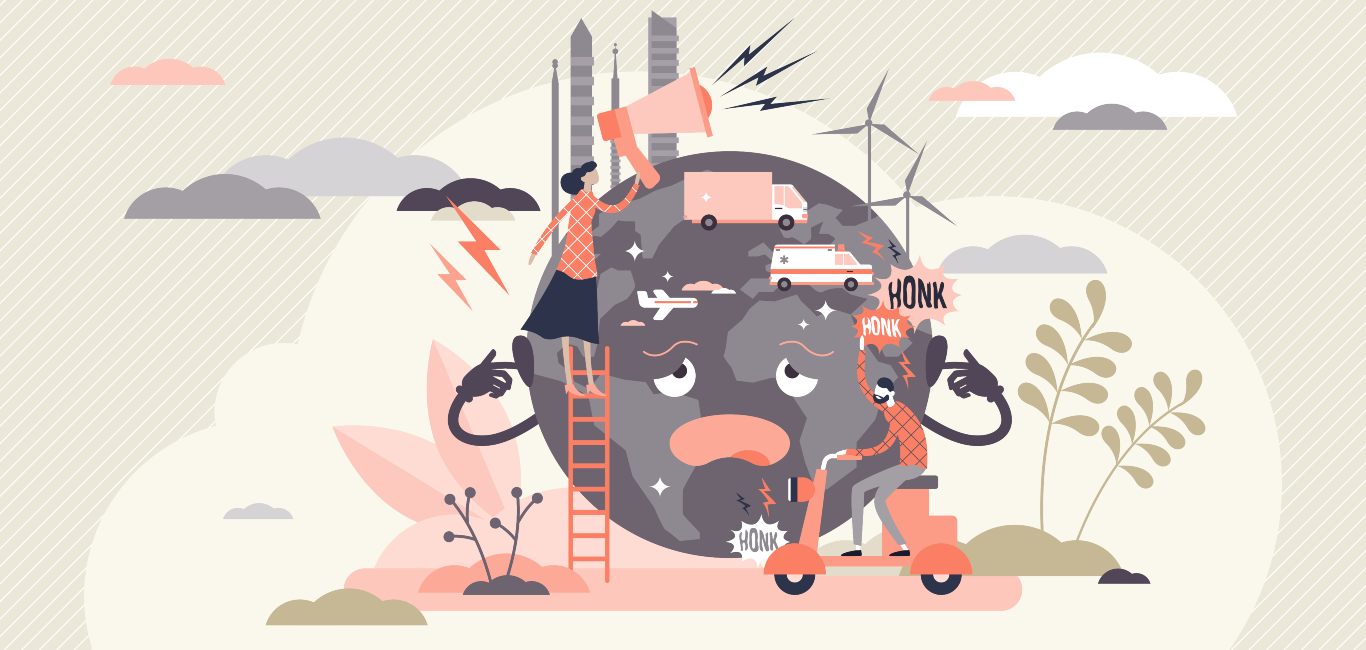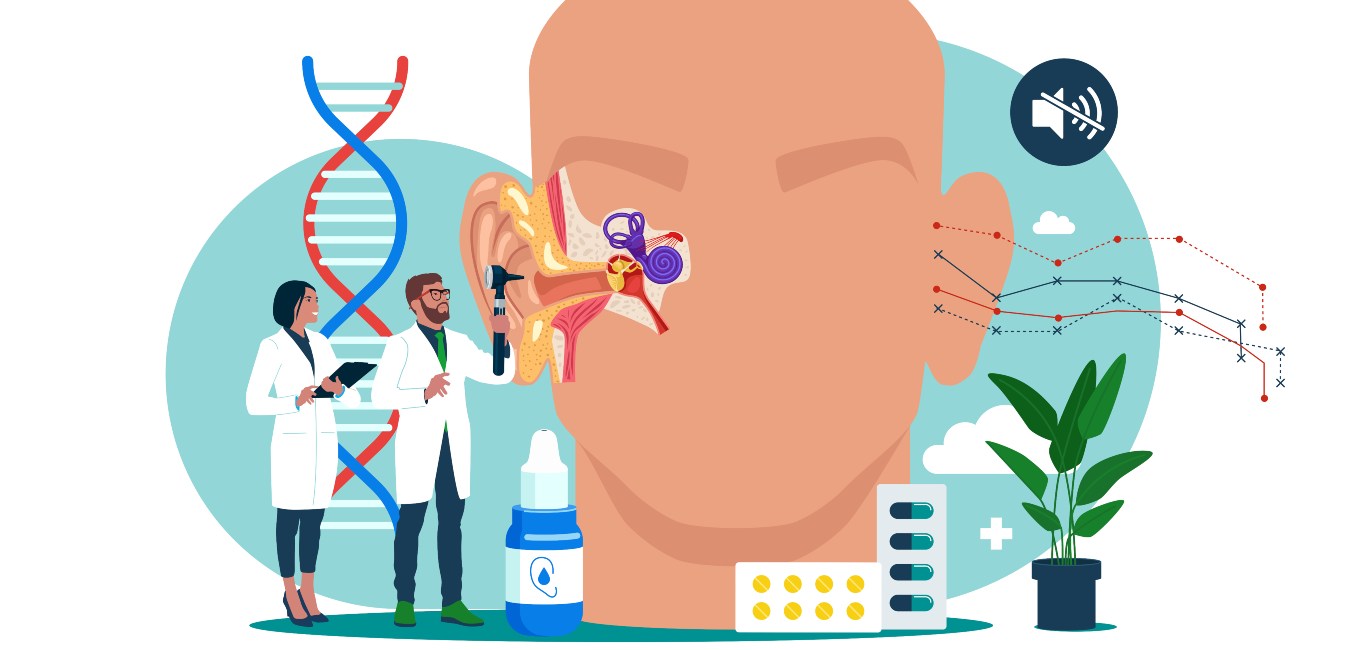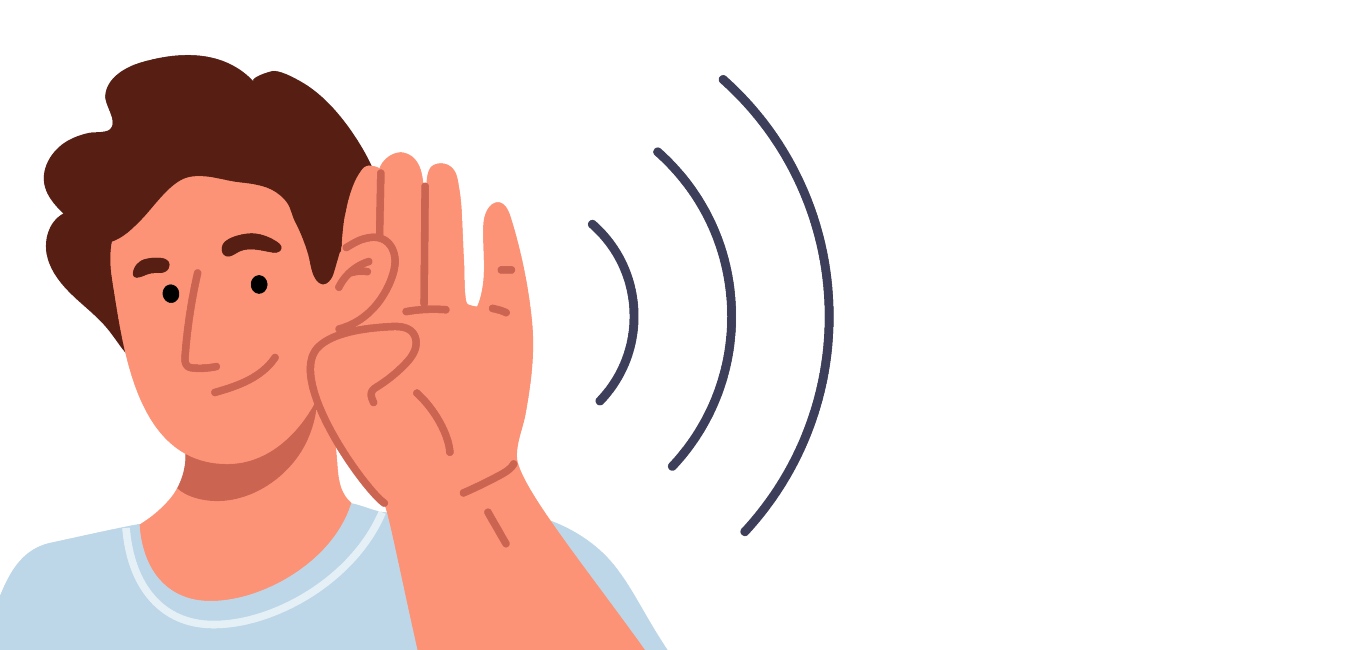
Manu Gowda, 30, of Bengaluru is a delivery boy by day and doubles up as a bike taxi driver at night. Both his jobs put him on the city’s traffic-snarled streets almost throughout the day.
In a candid conversation with Happiest Health, Gowda reveals that he has been suffering from migraines for several years. In recent months he started getting headaches on one side of the head, and at least once a day while he commutes. He believes it is an occupational hazard.
He hears ringing and buzzing sounds in his ears. Attributing them to the traffic noise that he is exposed to for prolonged hours, he says, “The doctor diagnosed this condition as tinnitus in 2020.”
Gowda is just one of many urban commuters who are affected by outdoor noise levels. “Noises in our living environment, like traffic noise, can trigger a migraine attack in individuals. Even common headaches can be caused by changes in the frequency and volume of noise around us,” says Dr Anish Gupta, lead consultant for ear, nose and throat at CK Birla Hospital, Gurugram.
Dr Jitendra Mohan Hans, otolaryngologist and founder of Dr Hans Centre For ENT, Hearing Care and Vertigo, Delhi, says each week, he sees between 20 and 30 patients who are either exposed to noisy traffic or work in factories where the noise levels from machines are high.
Sound and ear health
Dr Gupta says daily commuters who are exposed to noise from traffic risk hearing loss as high decibel levels can damage the ends of auditory (hearing) nerves. “It will lead to loss of hearing high frequencies and difficulty in understanding [others’] speech – problems which can neither be cured by medication nor surgery.”
World Health Organization (WHO) also suggests that noise can interrupt sleep; and good sleep is crucial not only for our ears but for the entire body’s recovery, so that it can take up the challenges of the following day.
Sound is measured in decibels or dB. It has been established that levels above 45 dB can disrupt one’s sleep. There is a probability of 10 per cent individuals waking up from deep sleep when exposed to 40 dB noise; and about 30 per cent may lose sleep at 70 dB. However, to keep the restorative process of sleep intact, a sound level below 35 dB is recommended.
The US Centres for Disease Control and Prevention (CDC) also advises daily commuters to avoid noise as much as possible. The city traffic – as felt from within a car – is an annoying 80-85 dB while motorcycle engines that revv around 95 dB can damage our hearing possibly after just 50 minutes of exposure to noise.
Research on permissible noise levels
For urban residential areas the Central Pollution Control Board permits a maximum daytime sound limit of 55 decibels acoustic and a night time upper permissible limit of 45 dB(A).
But the noise data measured in 2017 for Bengaluru fluctuated between 60 and 70 dB(A). This is the level to which Manu Gowda is getting exposed every day.
CDC data show the effect of noise pollution on one’s hearing health. Exposing a 25-year-old to noise levels above 60 dB(A) can age the person’s ear function prematurely, causing them the kind of hearing deterioration that could happen at 50 years or double their age, CDC statistics say.
Noise exposure and overall health
Dr Hans says noise constricts blood vessels and deprives the body of oxygen. This is the predisposing factor of noise-associated malaises mainly in the ears but also in the brain, heart, vision and on skin which sees early wrinkling.
There is more to it than this. Dr Gupta says exposure to daily traffic noise will result in anxiety, stress, sleep disturbance, hypertension and cardiovascular complications. It can interfere with the ability to conduct daily tasks and activities while in children, noise may lead to poor reading ability and poor school performance.
What are safe sound levels?
The US Environmental Protection Agency and WHO recommend maintaining environmental noises below 70 dBA over 24 hours (or 75 dBA over eight hours) to prevent noise-induced hearing loss.
It might not be possible for all to measure the noise surrounding them. The National Institute of Occupational Safety and Health has built sound level meters (SLMs) that, via gadgets, can solve the concern. One such SLM is an app of the institute and used exclusively for iOS.
“Avoid constant exposure to sound above 80 dB. The maximum [permitted level] is up to 80 dB for eight hours, for five days a week,” advises Dr Gupta. “If it’s more than this in a workplace, hearing conservation protocols should be initiated.”
Protocols to manage the effects of noise
The first protocol to adopt is to reduce one’s exposure to noisy traffic. Gowda started working as per an innovative shift rotation plan to minimise his noise exposure. He worked as a delivery executive at noon on even days and as rental bike captain at night on odd days.
“My tinnitus is still the same, but the frequency of the headaches has reduced,” says Gowda.
Dr Gupta also recommends a few practices to manage the deleterious effects of noise which people like Gowda or office commuters can follow:
- Find a relatively calm area and ensure spending some time in that environment each day.
- Wear protective gear like earmuffs or well-cushioned helmets to reduce the intensity at which loud sounds hit your ears.
- Individuals commuting by four-wheelers can keep the windows closed.
- Stop honking and avoid sudden acceleration of vehicles.
- Try to commute on routes with less traffic and therefore less noise.
- Opt for technological improvement in vehicles and keep them serviced and lubricated regularly: you have contributed in a small way to reducing noise pollution.
- Use appropriate, legally allowed silencers in your vehicles and avoid after-purchase additions.

















